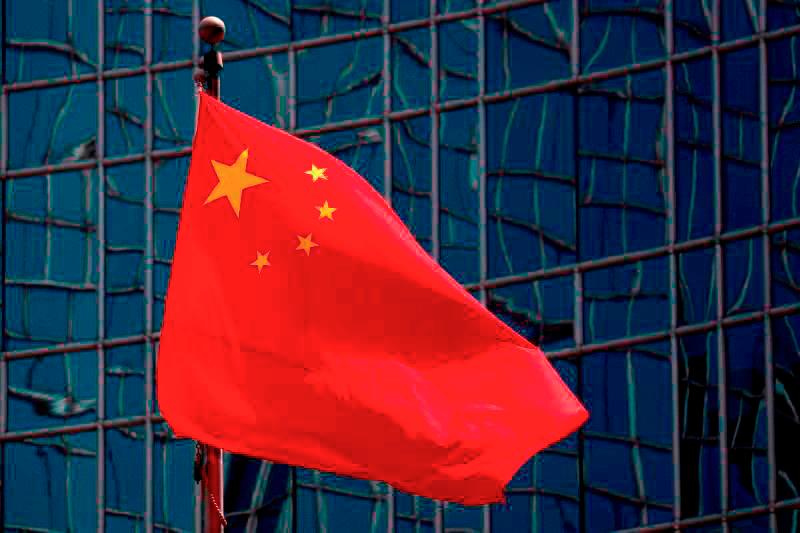BEIJING: China’s Xi Jinping hailed “progress” in talks with U.S. Secretary of State Antony Blinken in Beijing on Monday, the final engagement of a closely-watched trip aimed at ensuring the superpower’s disputes do not spiral into conflict.
Blinken, the first holder of his post to meet the Chinese leader since 2018, strode towards Xi with his hand outstretched at the Great Hall of the People, a venue China often uses for greeting heads of state - positive signals in the choreography of diplomacy.
The two shook hands, then the delegations faced each other across a conference table bedecked with pink lotus flowers, with Xi at the head and Blinken just to his right.
Their roughly 30-minute meeting could help facilitate a summit between Xi and U.S. President Joe Biden later in the year.
Biden and Xi last met on the sidelines of the G20 summit in Bali, Indonesia in November, pledging more frequent communication, although ties since then have deteriorated over issues ranging from Taiwan to espionage concerns.
“The two sides agreed to follow through the common understandings President Biden and I had reached in Bali. The two sides have also made progress and reached the agreement on some specific issues. This is very good,“ Xi told Blinken at the start of the meeting.
Blinken responded by saying the two countries “have an obligation and responsibility” to manage their relationship and that the United States was “committed to doing that”.
His meetings in Beijing, including talks with China’s top diplomat Wang Yi and foreign minister Qin Gang, had been “candid and constructive,“ he added.
It was not immediately clear from Xi’s remarks or previous readouts of Blinken’s meetings exactly what progress had been made
Chinese state media said Xi told Blinken in the otherwise closed-door talks that China “hopes to see a sound and steady China-U.S. relationship” and believes that the two countries “can overcome various difficulties”.
But he also urged the U.S. not to “hurt China’s legitimate rights and interests”, a signal of potential flashpoints such as Taiwan, the democratic island Beijing claims as its own, which had cropped up during Blinken’s previous meetings.
Taiwan core issue
The lack of regular and open communication channels between the world’s top two economies has sent jitters around the world, and Beijing’s reluctance to engage in regular military-to-military talks with Washington has alarmed China’s neighbours.
But Xi’s comments, and the body language of the visit, appeared to signal a will to make progress, analysts said.
“China’s messaging has been pretty positive,“ said Wu Xinbo, a professor and director at the Center for American Studies at Fudan University in Shanghai.
“China showed that it still hopes to work with the U.S. to stabilise and improve relations. I think that while China is not optimistic about Sino-US relations, it has not given up hope either.”
Earlier on Monday, Blinken underscored the importance of open communication channels to manage their competition during more than three hours of talks with Wang, which the State Department called “productive”.
Describing the U.S.-China relationship as being at a low point, Wang said the root cause was the United States’ wrong perception of China.
“We must take a responsible attitude toward the people, history and the world, and reverse the downward spiral of U.S.-China relations,“ Wang said during the meeting with Blinken, according to a statement released by China’s foreign ministry.
Blinken’s trip, which was postponed in February after a suspected Chinese spy balloon flew over U.S. airspace, is closely followed worldwide as further deterioration of ties could have global implications on financial markets, trade practices and routes and supply chains.
Beijing’s tone on Taiwan has been particularly pointed throughout Blinken’s visit. Wang said “China has no room for compromise or concessions”, according to the Chinese readout.
The United States has long stuck to a policy of “strategic ambiguity” over whether it would respond militarily to an attack on Taiwan, which Beijing has refused to rule out.
When asked last year, U.S. President Joe Biden said Washington would defend Taiwan in the event of a Chinese invasion, though aides later said his comments did not reflect a policy departure from the long-standing “one China” policy.
U.S. officials have underscored that the United States does not support Taiwan independence.
U.S. officials have been playing down the prospect of a major breakthrough in talks, but they and analysts expect Blinken’s visit will pave the way for more bilateral meetings in coming months, including possible trips by Treasury Secretary Janet Yellen and Commerce Secretary Gina Raimondo. -REUTERS










